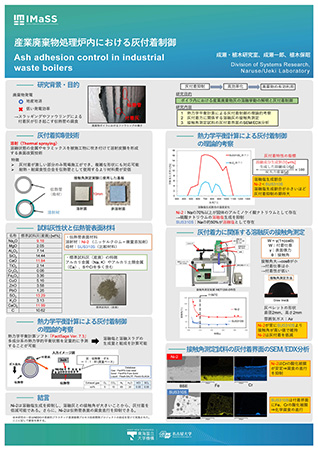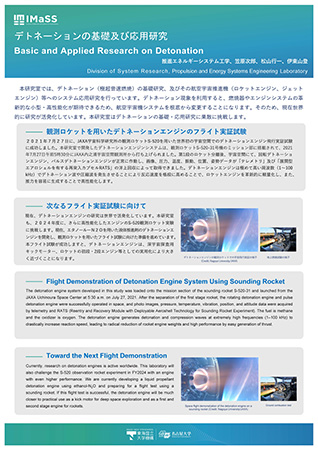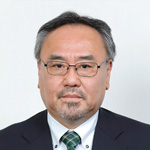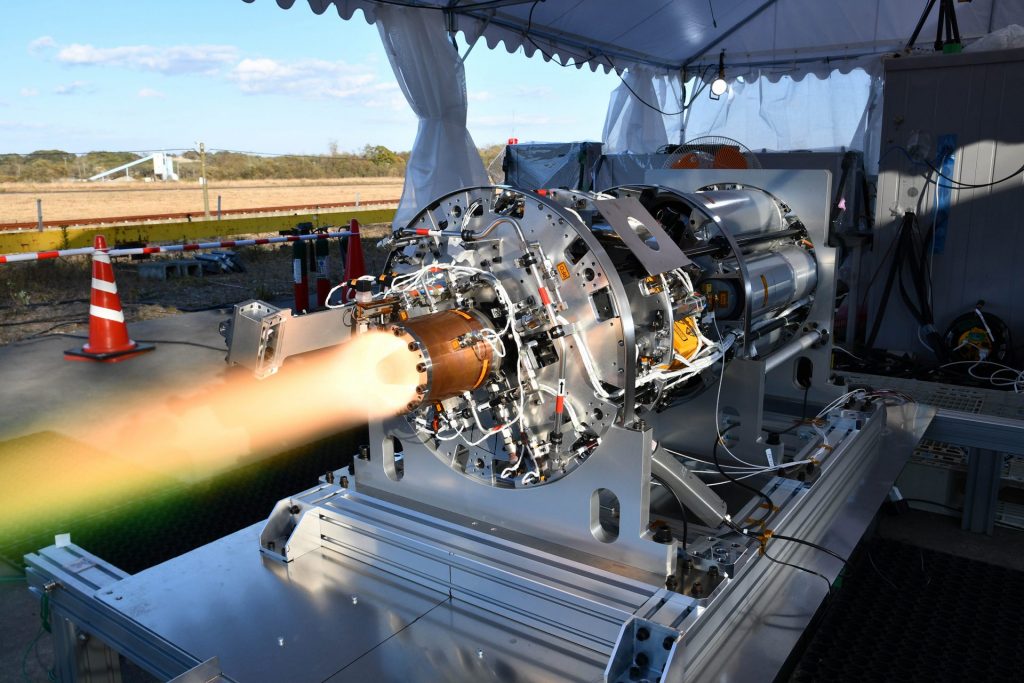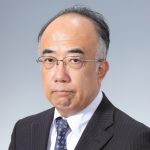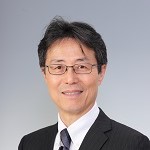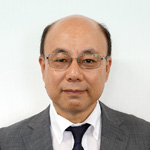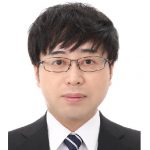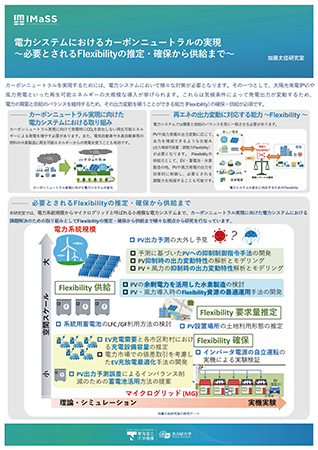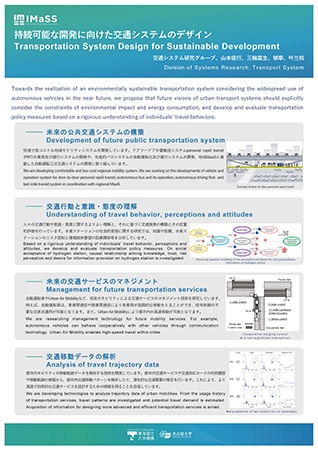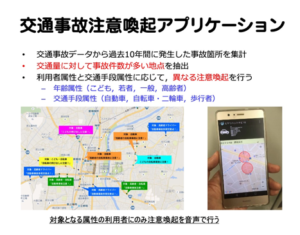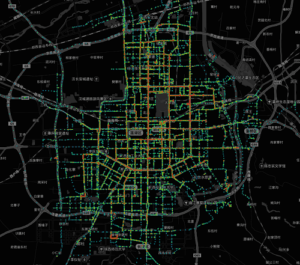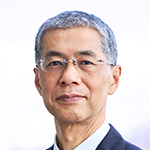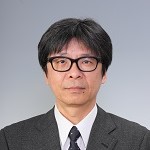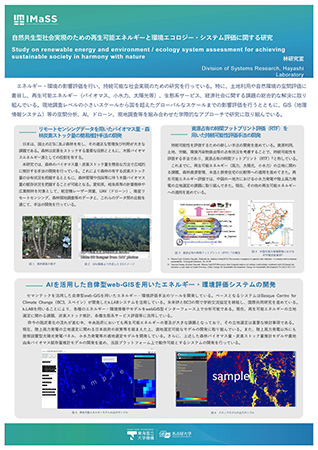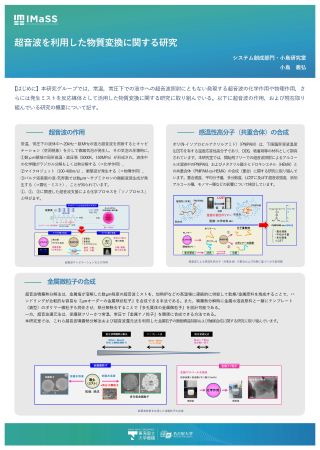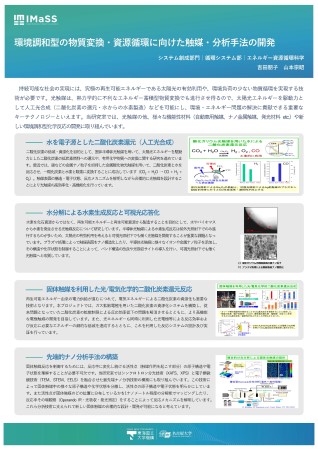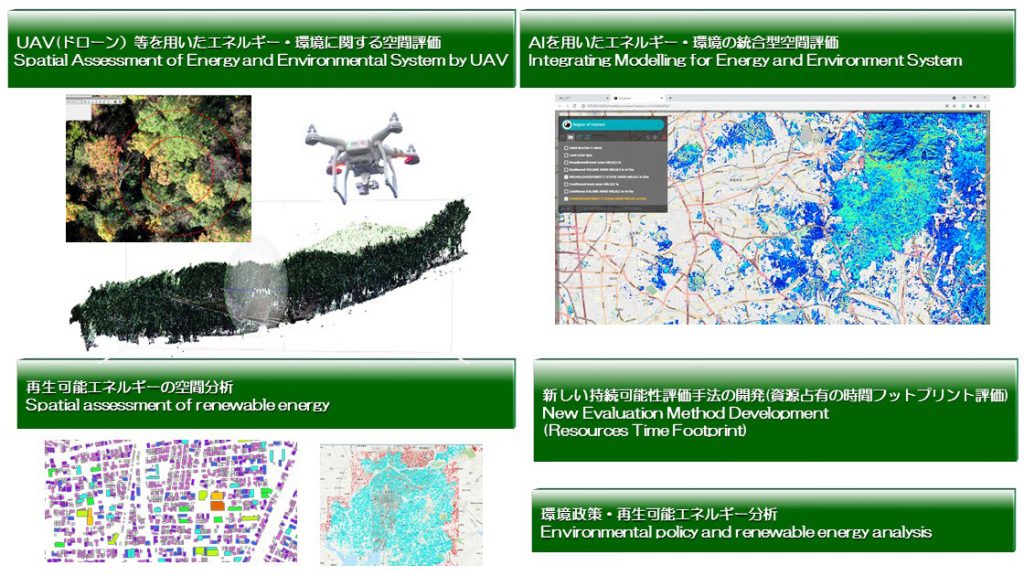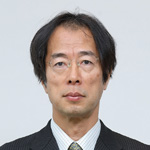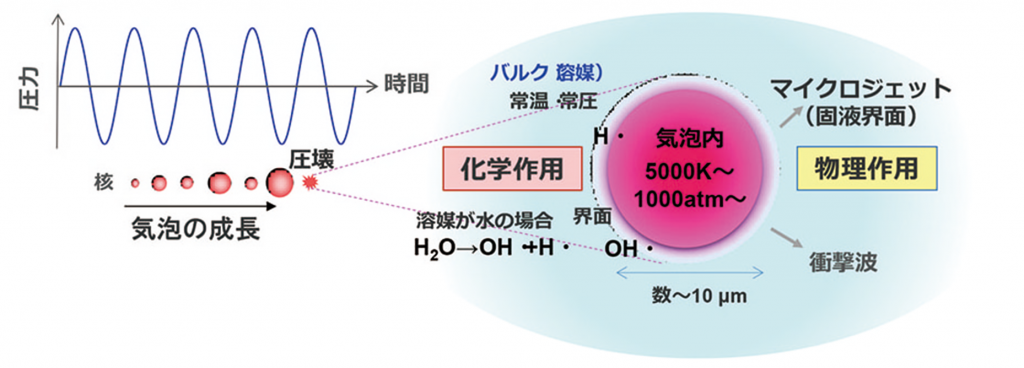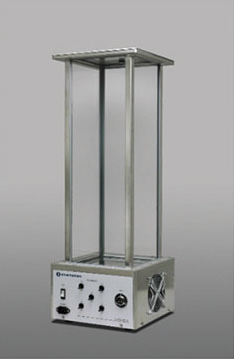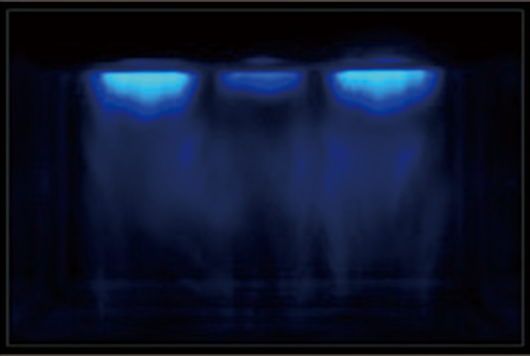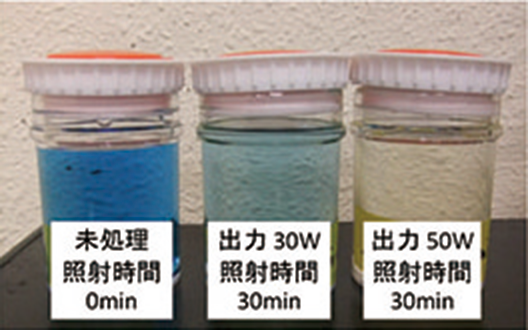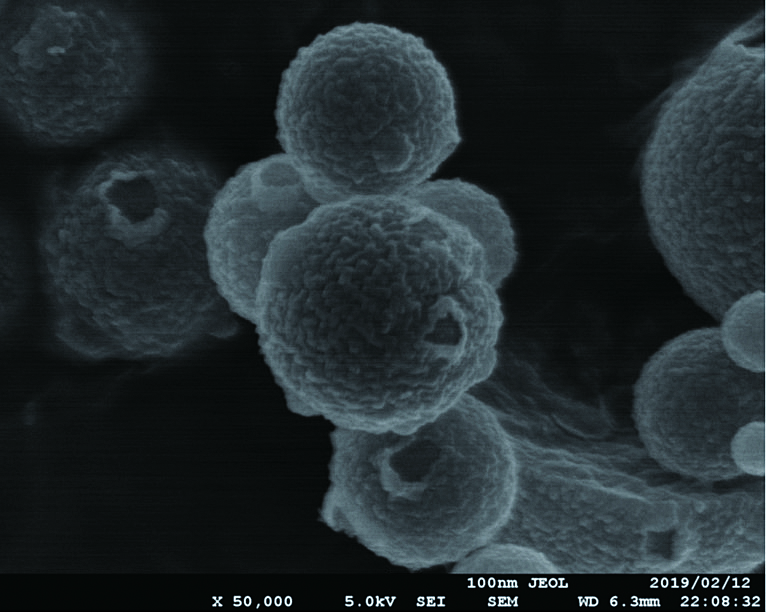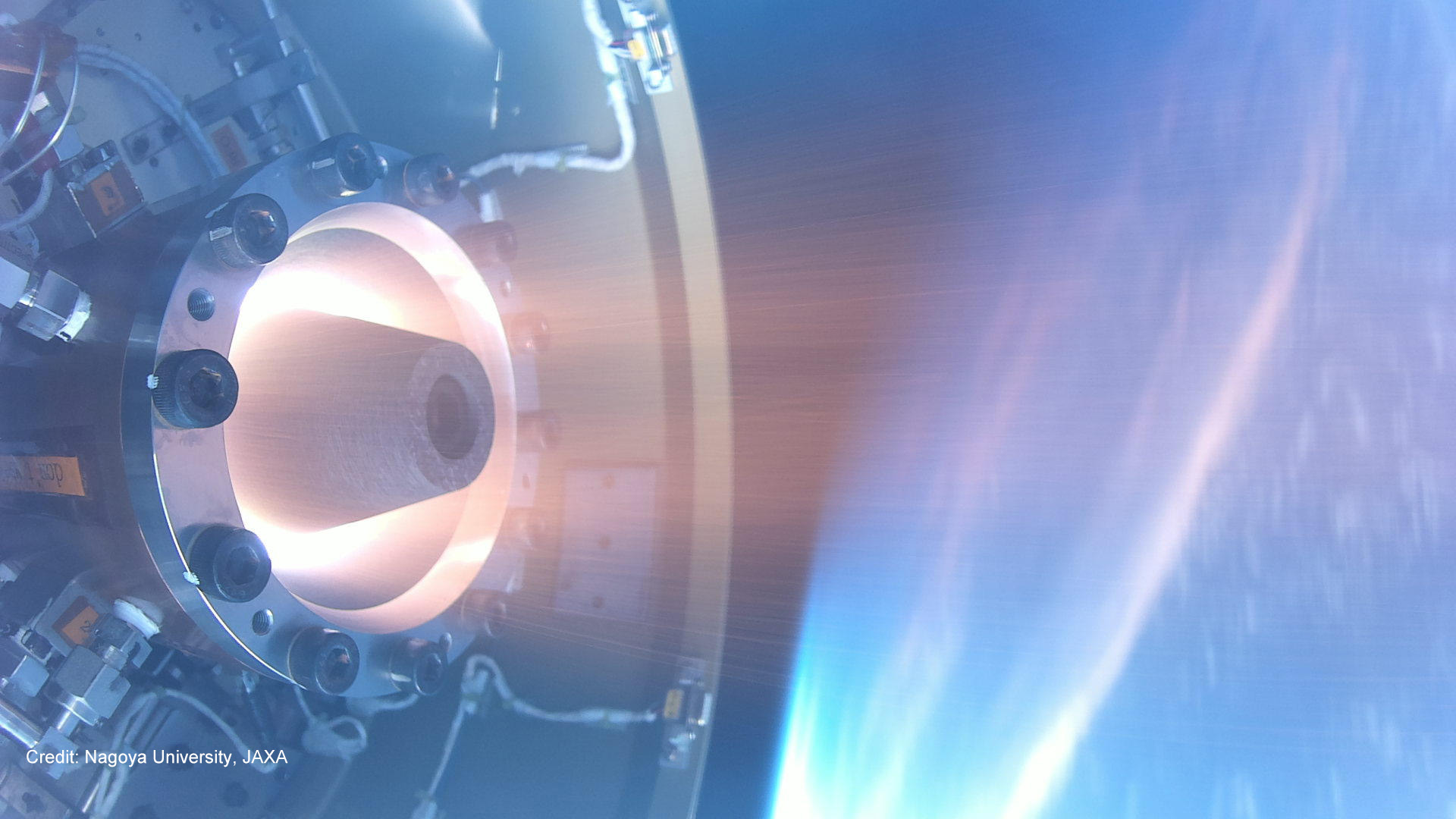
DS
Organization
Division of Systems Research
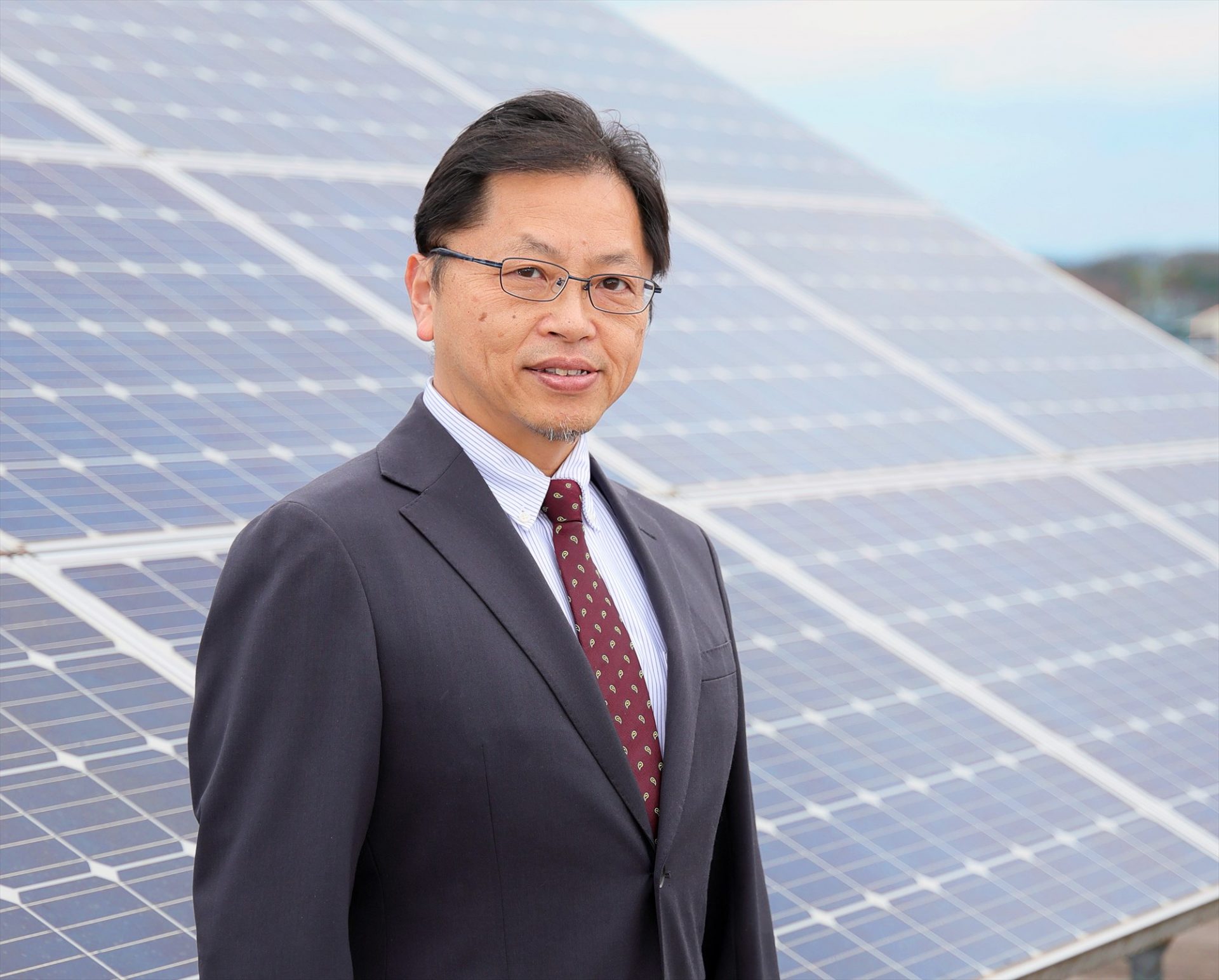
Division of Systems Research
Director of the Division
KATO, Takeyoshi
The Division of Systems Research (DS) aims to develop key technologies contributing to sustainable and ecological society, such as advanced energy conversion, transmission, and utilization technologies, energy and environmental impact assessment methods from various points of view, and material conversions and circulation. For the effective use of these technologies, the DS also carries out leading- edge researches on urban traffic management system and information security, etc.
Division of Systems Research
![]() Movie
Movie
Division of Systems Research Introduction video
-
Systems research that contributes to sustainable development and environmental harmony(3min.32sec.)
 Section / Group
Section / Group
Conversion Systems Section
This section is engaged in research aimed at the creation of ecological and cutting-edge energy conversion systems. This includes development of highly-efficient energy conversion technologies for biomass and waste and downsizing and high performance of the combustors and/or engine systems by applying the detonation phenomena.
Energy and Environmental Engineering
In order to embody the sustained security of global environment and the local material recycling society, we are engaged in development of the new ecological and highly-efficient energy conversion technologies, using the high temperature processes such as combustion and gasification. We develop the highly-efficient utilization technology of biomass and waste, elucidation of ash behavior and ash adhesion control technology in the energy conversion processes of solid fuel.
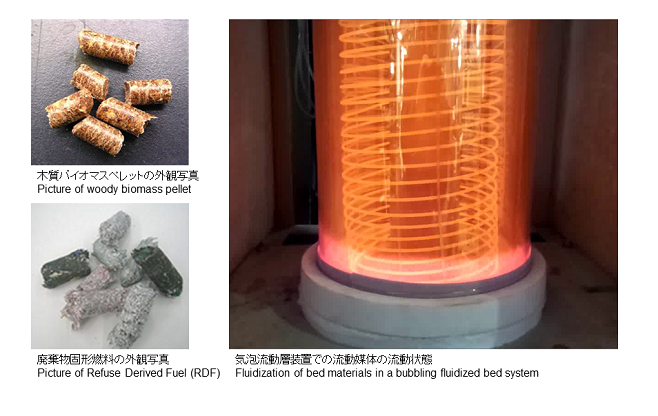
Member
-
Project
Development of Highly Efficient Energy Conversion Technologies for Global and Local Environment
-

Visiting Professor
NAGANUMA, Hiroshi
-

Propulsion and Energy Systems Engineering
In this laboratory, we are conducting basic research on detonation and its application to aerospace propulsion and gas-turbine engines. By utilizing the detonation phenomenon, innovative downsizing and high performance of combustors and engine systems can be expected. The detonation engine will fundamentally change various systems.
Member
-
Project
Study on High-Thermal-Efficiency Detonation Engines
-
Project
Application of Detonation Engines to Space Propulsion System
-
Project
Application of Detonation Engines to Space Propulsion System
-
Project
Study on Detonation Phenomena on the Viewpoint of Chemical Engineering and Its Application
-
Project
Study on Combustion Mechanism of Detonation and its Engineering Application for Space Propulsion
-

Visiting Associate Professor
KAWASAKI, Akira
Network Systems Section
The Network Systems Section is pursuing cutting-edge researches, such as planning and control method of energy system connecting various electricity/heat sources and demands, future visions of environmentally sustainable urban transportation system and its optimum management, and information security necessary for reliable operation of infrastructures.
Energy Systems
In order to realize the stable and reliable operation of future electric power system with high penetration renewable energy such as photovoltaic power generation and wind power generation, we investigate and develop the following issues: highly accurate and reliable forecasting and nowcasting method of renewable power output, sophisticated planning and operation method of electric power system, control method of demand-side resources and distributed generators to contribute to power system operation. In addition, we develop a time-series data of future electricity demand and renewable power output to be used in a system assessment in consideration of the actual situation.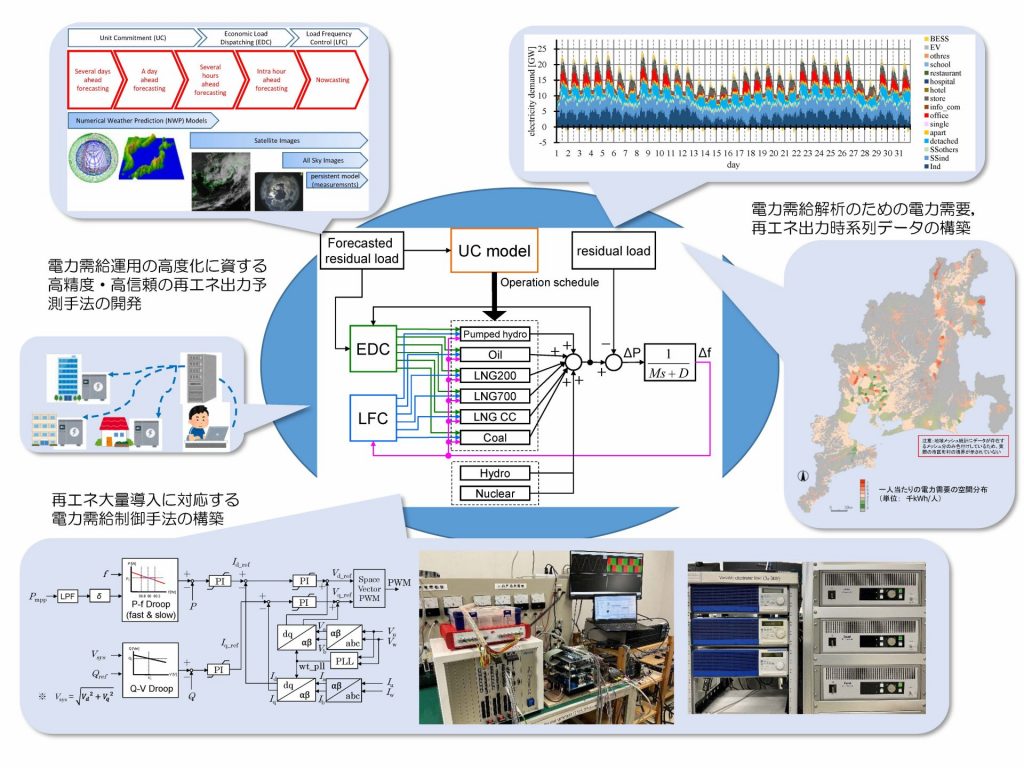
Member
-
Project
Development of Planning and Control Method of Electric Power System in Consideration of Diversity of Energy Resources and Demands
Transport System
Towards the realization of an environmentally sustainable transportation system considering the widespread use of autonomous vehicles in the near future, we propose that future visions of urban transport systems should explicitly consider the constraints of environmental impact and energy consumption, and develop and evaluate transportation policy measures based on a rigorous understanding of individuals’ travel behaviors. Our research topics include the efficiency of the use of electric vehicles, social acceptance of hydrogen fueling station, transportation system toward carbon neutral, countermeasures to reduce traffic accidents, door-to-door personal rapid transit system.
- Traffic management on urban road network utilizing taxi trajectory data
Cryptography and Information Security
For information and communication systems for a sustainable society, we are conducting research on their security from the perspective of cryptography and information security. Through the research on lightweight cryptography for energy conservation, security techniques for beyond 5G/6G systems, and quantum security analysis, we aim to contribute to realizing a safe and secure society, where everyone can benefit from information and communication technology into the future.
Circulation Systems Section
The Circulation Systems Section develops various key technologies related to ecological material conversions and circulation, and also pursues development on energy and environmental impact assessment system useful for comprehensive solution of problems related to renewable energy, ecosystem services, economy, and society.
Environment and ecology system assessment
We are conducting research to realize a sustainable society by assessing the impact of energy and the environment. Focusing particularly on land use and spatial evaluation of the natural environment, we are working on the comprehensive solution of problems related to renewable energy( biomass, small-scale hydropower, solar power, etc.), ecosystem services, economy, and society. Along with environment assessments ranging from small-scale field surveys to global-scale assessment, we are engaged in research with an interdisciplinary approach combining, for example, spatial analysis such as GIS( Geographical Information System), AI, UAV, and field surveys.
Member
-
Project
Analysis and assessment of energy and environment system
-

Microbial Ecological Engineering for Water Environments(MEE-Water lab)
Eco-Energy Engineering
We conduct research on the application of micro space formed by ultrasonication to the material design and development of chemical/physical processes aiding energy conversion and wastetreatment.
Ultrasonic cavitation and hotspot
- Sonochemical reactor
- Chemical luminescence in a sonochemical reactor
- Ultrasonic decomposition of dye Sonochemical reactor in aqueous solution
- Metal particles
Member
-
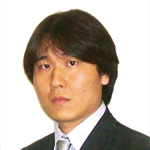
Project
Sono-Assisted Chemical and Physical Processes for Preparations of Material and Fuel, Resource Recovery and Wastewater Treatment
Energy Resource Circulation Science
Our research aims to realize sustainable material conversion and circulation by utilizing energy resources. Specifically, we focus on water splitting and carbon dioxide conversion using solar energy and electricity derived from renewable sources.
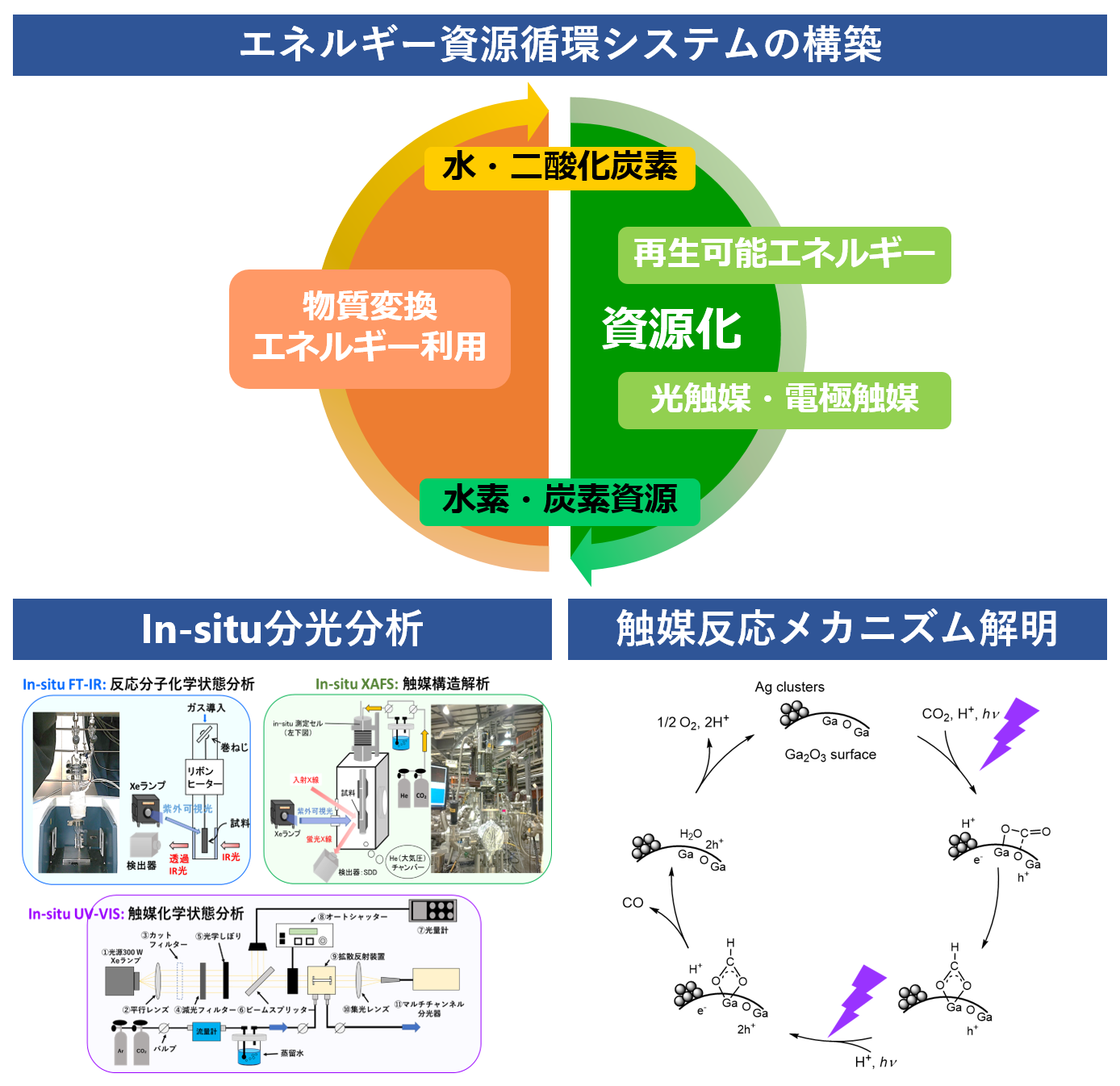
Member
-
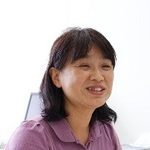
Project
Design and development of advanced solid catalysts for artificial photosynthesis
-

Project
Study on Water Splitting and Carbon Dioxide Conversion Utilizing Renewable Energy




